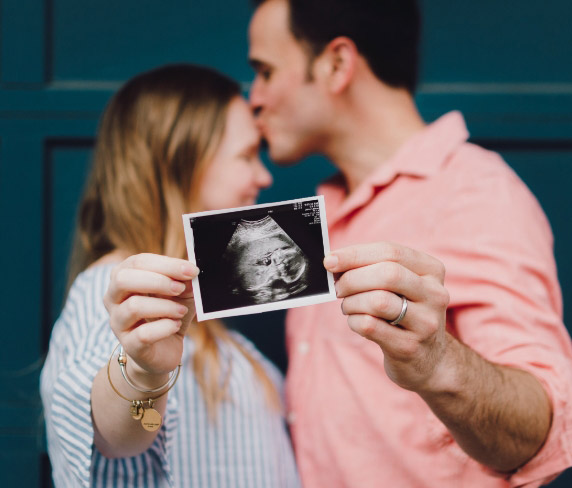We specialise in Surrogacy Law
introducing Kate Cherry
 Kate has a passion for surrogacy law, having worked in family law since 2000, and specialising in surrogacy since it became legal in 2010.
Kate has a passion for surrogacy law, having worked in family law since 2000, and specialising in surrogacy since it became legal in 2010.
Altruistic surrogacy
has been legal in Queensland since 2010
Surrogacy is becoming increasingly common and more widely accepted in our community, and assists many Australian families to start or extend their families.
The Surrogacy Act QLD (2010)
("the Act") regulates surrogacy arrangements in Queensland, as well as the requirements which enable you to obtain a parentage order after the birth of your child.
Altruistic Surrogacy
is available in Queensland to same sex or heterosexual couples, provided it is demonstrated to the court that a relevant medical or social need applies (as defined in the Act).
Commercial Surrogacy
is strictly prohibited and the birth parent(s) must not accept any payment other than for the birth mother's costs (as defined below).
Surrogacy Arrangement
IT IS CRUCIAL TO UNDERSTAND FROM THE OUTSET THAT A SURROGACY ARRANGEMENT (AS DEFINED BELOW) IS UNENFORCEABLE, OTHER THAN AS PROVIDED FOR IN SECTION 15 OF THE ACT.
Surrogacy Agreement
This is an agreement which sets out the intentions of the parties with respect to the surrogacy journey, the birth itself, and the actions of the parties post birth, including that the child’s care will be immediately relinquished to the intended parent(s) who will thereafter become permanently responsible for their custody and guardianship, and that the parties will consent to the making of a parentage order post birth.
Section 15 of the Act provides that a surrogacy arrangement is not enforceable.
However, an obligation under a surrogacy arrangement to pay or reimburse the birth mother’s surrogacy costs is enforceable unless a child is born as a result of the surrogacy arrangement and the birth parent(s) do not relinquish the custody and guardianship of the child to the intended parent(s), or alternatively, do not consent to the making of a parentage order.
The balance of a surrogacy arrangement is simply an expression of the mutual intentions of the parties at the time with respect to future management of any pregnancy and parentage of any child born as a result of the surrogacy arrangement.
Any matters agreed upon in relation to the birth mother’s conduct during the pregnancy, her management of the pregnancy and related issues are symbolic only in that they represent the mutual intentions of the parties at the time of entering into the arrangement.
The birth mother will continue to have the right to manage her pregnancy and birth as any other pregnant woman would do, despite anything that the parties to the surrogacy arrangement may have agreed upon, whether or not in writing.
Prior to entering into the surrogacy arrangement, all parties must have obtained counseling from an appropriately qualified counselor about the surrogacy arrangement and its social and psychological implications, and must have obtained independent legal advice about the surrogacy arrangement and its implications.
Birth mother’s costs
Section 11 of the Act provides a definition of the birth mother’s surrogacy costs.
view section 11These include, but are not limited to, the following items:-
- any reasonable medical costs for the birth mother associated with becoming or trying to become pregnant;
- a reasonable cost, including a reasonable medical cost, for a child born as a result of the surrogacy arrangement;
- a premium payable for health, disability or life insurance that would not have been obtained by the birth mother if the surrogacy arrangement had not been entered into;
- a reasonable cost of counselling associated with any of the matters mentioned in becoming or trying to become pregnant, a pregnancy or birth or the birth mother and her spouse (if any) being a party to a surrogacy arrangement or proceedings in relation to a parentage order thereafter;
- the cost of counselling obtained by the birth mother and her spouse (if any) before or after entering into the surrogacy arrangement, including the costs relating to the preparation of a surrogacy guidance report pursuant to Section 32, following the birth of any child born as a result of the arrangement;
- any reasonable legal cost for the birth mother and the birth mother’s spouse (if any) relating to the surrogacy arrangement and the transfer of parentage;
- the value of the birth mother’s actual lost earnings because of leave taken for a period of not more than two (2) months during which a birth happened or was expected to happen or for any other period duringthe period during the pregnancy when the birth mother was not able to work on medical grounds; and
- another reasonable cost associated with the surrogacy arrangement of or the making of the order transferring parentage.
Should the surrogacy arrangement provide for the intended parents to meet any of the costs outlined above, they are obliged at law to pay those costs and the birth parents can enforce the surrogacy arrangement to that extent unless they do not relinquish custody and guardianship of the child to the intended parents at birth or fail to consent to the making of the parentage order post birth.
Presumptions of parentage arising upon birth
At birth, the presumptions under the Status of Children Act (or equivalent) in relevant state in which the child is born will apply.
The birth mother will be presumed to be the child’s parent irrespective of any genetic link or lack thereof to the child born as a result of the surrogacy arrangement.
In most cases, the birth mother’s spouse will also be deemed at law to be the child’s parent, irrespective of any genetic link or lack thereof to the child.
Following the birth the birth parent(s) will be required to register the birth of the child as any other parent would pursuant to the requirements of the Births Deaths and Marriages Registration Act which is applicable in the state in which the child is born.

Parentage Order
THE MAKING OF THE PARENTAGE ORDER IS A VITAL COMPONENT OF THE SURROGACY JOURNEY WHICH FORMALISES THE CHILD’S LEGAL PARENTAGE.
Upon the making of the parentage order the child becomes the child of the intended parent(s) and the child ceases to be a child of the birth parent(s).
As outlined above, the Status of Children Act will continue to provide that the birth parent(s) are the legal parents of any child born as a result of a surrogacy arrangement until such time as a parentage order is made.
Until that time, the birth parent(s) will have all legal rights and responsibilities for the child and the intended parent(s) will have none.
Accordingly, the Act makes provision for the circumstances in which an application for a parentage order can be made.
Stringent requirements must be met in order for the Court to grant the application, which must be filed between 28 days and 6 months after the birth of the child.
Section 22 of the Act sets out the matters that the Court must be satisfied of prior to making a parentage order:
view section 22- On an Application under this part, the Court may make a Parentage Order for the transfer of parentage of a child to the Applicant, or joint Applicants.
- The Court may make the Parentage Order only if it is satisfied of all of the following matters—
- the proposed order will be for the wellbeing, and in the best interests, of the child;
- the child—
- has resided with the Applicant, or joint Applicants, for at least 28 consecutive days before the day the Application was made; and
- was residing with the Applicant, or joint Applicants, when the Application was made; and
- is residing with the Applicant, or joint Applicants, at the time of the hearing;
- the Applicant, or joint Applicants, were entitled to apply under section 21;
- there is evidence of a medical or social need for the Surrogacy Arrangement;
- the Surrogacy Arrangement—
- was made after—
- the Birth Mother and the Birth Mother’s spouse (if any), jointly or separately; and
- the Applicant, or joint Applicants (jointly or separately);
obtained independent legal advice about the Surrogacy Arrangement and its implications; and
- was made after each of the Birth Mother, the Birth Mother’s spouse (if any) and the Applicant, or joint Applicants, obtained counselling from an appropriately qualified counsellor about the Surrogacy Arrangement and its social and psychological implications; and
- was made with the consent of the Birth Mother, the Birth Mother’s spouse (if any) and the Applicant, or joint Applicants; and
- was made before the child was conceived; and
- is in writing and signed by the Birth Mother, the Birth Mother’s spouse (if any) and the Applicant, or joint Applicants; and
- is not a commercial Surrogacy Arrangement;
- was made after—
- the Birth Mother and the Birth Mother’s spouse (if any) were at least 25 years when the Surrogacy Arrangement was made;
- the Applicant, or each of the joint Applicants—
- was at least 25 years when the Surrogacy Arrangement was made; and
- is resident in Queensland;
- the Birth Mother, the Birth Mother’s spouse (if any), another birth parent (if any) and the Applicant, or joint Applicants, consent to the making of the Parentage Order at the time of the hearing;
- a Surrogacy Guidance Report under section 32 supports the making of the proposed order.
Interstate surrogacy laws
Surrogacy legislation (unlike family law legislation) is state based, and therefore governed by the individual legislation in the state in which you live.
This hybrid mix of legislation means that in many areas there are conflicting requirements from state to state regarding the circumstances in which surrogacy is permitted, including who can be intended parents, and who can be a birth mother or birth parents.
It is therefore crucial to get expert advice prior to entering into your surrogacy arrangement to ensure that you meet the requirements that will be relevant to your surrogacy journey, and importantly, the making of your parentage order and the registration of that parentage order with the relevant Registry of Births Deaths and Marriages.

